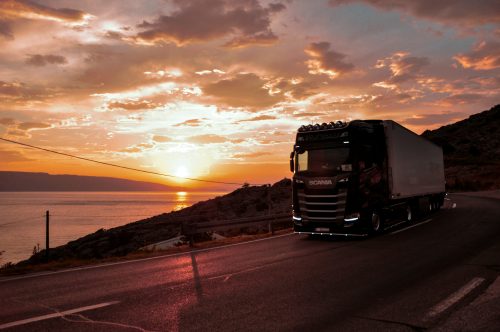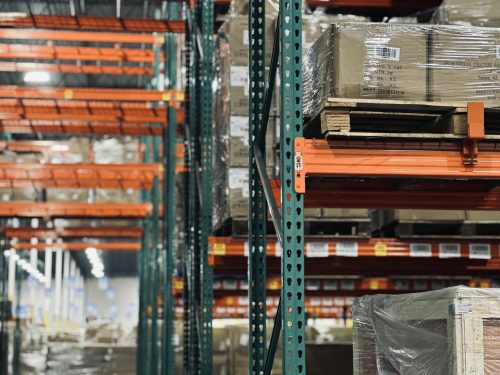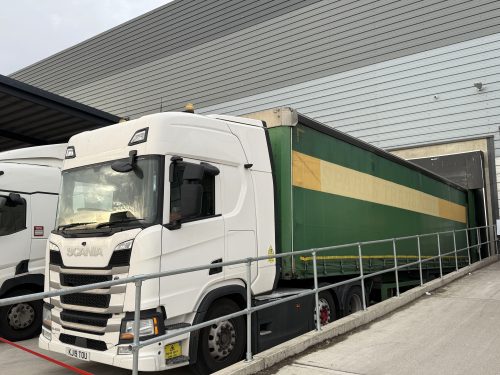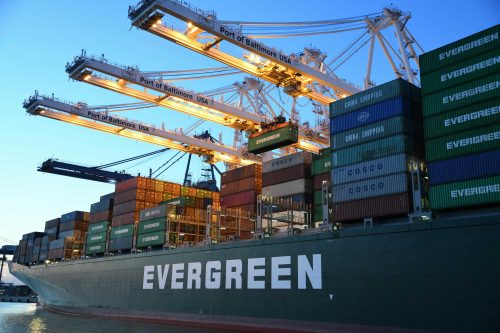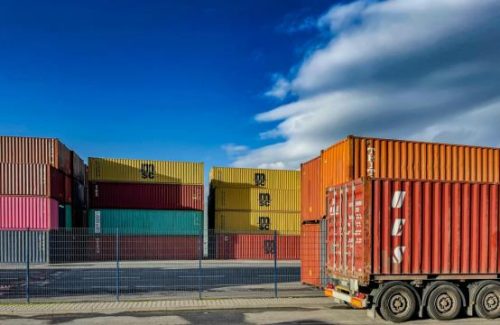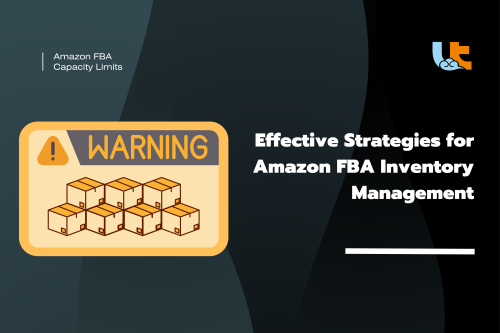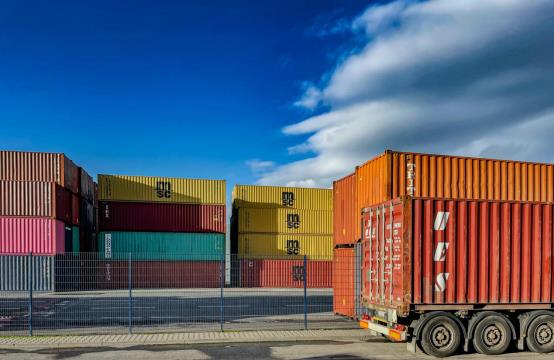
So your container finally cleared US customs. You've passed the biggest hurdle, right? Wrong.
For most sellers, the most chaotic, complex, and expensive part of the entire shipping journey is what happens next: the "final mile" inside the United States. From shocking drayage fees at the Port of Long Beach to navigating the 53-foot trailer rules and FBA appointment fees, this is where profit margins are lost.
This guide is your map. We'll break down the US truck shipping system, from drayage to FTL/LTL, so you can build a logistics plan that doesn't eat your profit.
The Two-Step Journey of an Importer's Truck Shipment
For a domestic US company, "truck shipping" is simple. For an international importer, it's a two-step process:
Drayage: This is the first truck move. It’s a short-haul trip where a specialized truck picks up your container directly from the port or rail terminal and moves it to a nearby warehouse or transloading facility. This is a rapid, essential service to avoid costly port storage fees.
Transloading & Onward Trucking: Your goods are "transloaded" (moved) from the 20ft or 40ft ocean container into a 53ft domestic truck trailer. This trailer then begins the second truck move (the "onward" or "line-haul" journey) to its final destination, like an Amazon FBA center or a retail distribution hub.
FTL vs. LTL: Choosing Your Onward Shipping Method
After your goods are transloaded, you must choose between Full Truckload (FTL) and Less-Than-Truckload (LTL) shipping.
Full Truckload (FTL)
FTL shipping means you rent the entire 53ft trailer for your exclusive use. Your goods are the only items on the truck, which travels directly from the warehouse to your destination.
- Best For:
- Large shipments (over 10-12 pallets or 5,000 lbs / 2,270 kg).
- High-value or fragile goods that you don't want handled multiple times.
- Time-sensitive deliveries (like FBA appointments) since it's the fastest ground option.
Less-Than-Truckload (LTL)
With LTL, you only pay for the space your pallets take up on the truck. Your shipment shares the trailer with goods from many other companies. The truck makes multiple stops at different hubs to pick up and drop off freight.
- Best For:
- Smaller shipments (typically 1-10 pallets).
- E-commerce sellers shipping smaller batches to multiple FBA centers or 3PLs.
- Budget-conscious shipments where speed is not the #1 priority.
| Feature | LTL (Less-Than-Truckload) | FTL (Full Truckload) |
| Best For | Small shipments (1-10 pallets) | Large shipments (10-24 pallets) |
| Cost | Cheaper for small-volume | More cost-effective for large-volume |
| Speed | Slower (multiple stops) | Faster (direct-to-destination) |
| Handling | Goods are handled multiple times | Goods are not touched until delivery |
| Risk | Higher risk of damage or loss | Very low risk of damage |
Decoding Your Truck Shipping Rates: The Hidden Costs
Your final truck shipping invoice is almost never just the base rate. It includes many variables and "accessorial fees" that are crucial to budget for.
Freight Class: LTL shipments are categorized by a "freight class" code (from 50 to 500) based on their density, handling, and value. A low-density item (like pillows) has a high, expensive class, while a high-density item (like steel) has a low, cheap class.
Destination: Shipping to a dense, easy-to-access warehouse in a major city is cheap. Delivering to a rural area will incur surcharges.
Fuel Surcharges (FSC): This is a variable fee that all carriers add to cover fluctuating fuel prices.
Accessorial Fees (The Most Important Part): These are charges for any service beyond the standard pickup and drop-off.
- Liftgate Service: If your delivery location (or your factory's 3PL) does not have a loading dock, you will need a truck with a liftgate to lower the pallets to the ground. This always costs extra.
- Amazon FBA Appointment: Carriers must schedule a strict delivery appointment with Amazon. This coordination adds a fee.
- Residential Delivery: Delivering to a home address (sometimes including small businesses without a dock) adds a large surcharge.
- Detention: If your team (or the warehouse staff) takes too long to load or unload the truck (usually > 1-2 hours), the carrier will charge you a hefty "detention" fee for the driver's wasted time.
How to Prepare Your Shipment for a US Trucking Partner
Proper preparation is the best way to avoid extra fees and damage.
- Packaging (Palletization): This is the most important step.
- Use Standard Pallets: The standard US pallet size is 48" x 40". Ensure your goods are packed neatly on these.
- Do Not Overhang: Goods must not hang over the pallet's edge.
- Secure & Wrap: Use stretch wrap to secure all boxes to the pallet, and label each pallet clearly. Poorly stacked pallets are the #1 cause of LTL damage.
- Labeling Requirements: For e-commerce sellers, this is vital. Every box and every pallet must have the correct Amazon FBA labels or other warehouse labels clearly visible.
- Key Documents: The Bill of Lading (BOL)
- The commercial invoice and packing list were for your international journey. For the domestic truck journey, your most important document is the Bill of Lading (BOL).
- The BOL acts as the contract between you (the shipper) and the trucking company. It contains all the details: what is being shipped, the freight class, the origin, and the destination.
Shipping to the UK or Canada?
While the principles of FTL and LTL are similar, the specifics of drayage, trailer sizes (13.6m trailers in the UK), and pallet standards are very different. Read our dedicated guides to learn more:
Don't Let the Final Mile Complicate Your Supply Chain
Managing port drayage, finding a transloading warehouse, booking FTL/LTL partners, and avoiding accessorial fees is a full-time job. A missed delivery appointment or a miscalculated fee can halt your business.
This is why a true end-to-end logistics partner is so valuable.
At Linktrans, we manage the entire journey. Our platform integrates everything from warehousing and consolidation in China to the final-mile trucking delivery across the United States. We provide a seamless, reliable process with one single point of contact, ensuring your goods arrive at their destination efficiently and on-budget.
Ready to simplify your entire US supply chain? [Contact us for a free consultation today.]

